25 years of impact: Stories of how CSA has transformed the lives of Central Iowans

 Community Support Advocates is celebrating 25 years of supporting individuals and families impacted by mental health or disabilities in Central Iowa.
Community Support Advocates is celebrating 25 years of supporting individuals and families impacted by mental health or disabilities in Central Iowa.
To celebrate a quarter-century of service, CSA asked individuals to share their stories, below, and will also share them through Facebook and Instagram using hashtag #CSA25DSM, as well as through our newsletter.
Accessing mental health or disability services in Central Iowa can be overwhelming or frustrating for individuals and families, and CSA serves as a critical access point to programs.
The services the nonprofit provides — as well as the care and dignity team members, volunteers, and leaders share — has been transformational for many families.
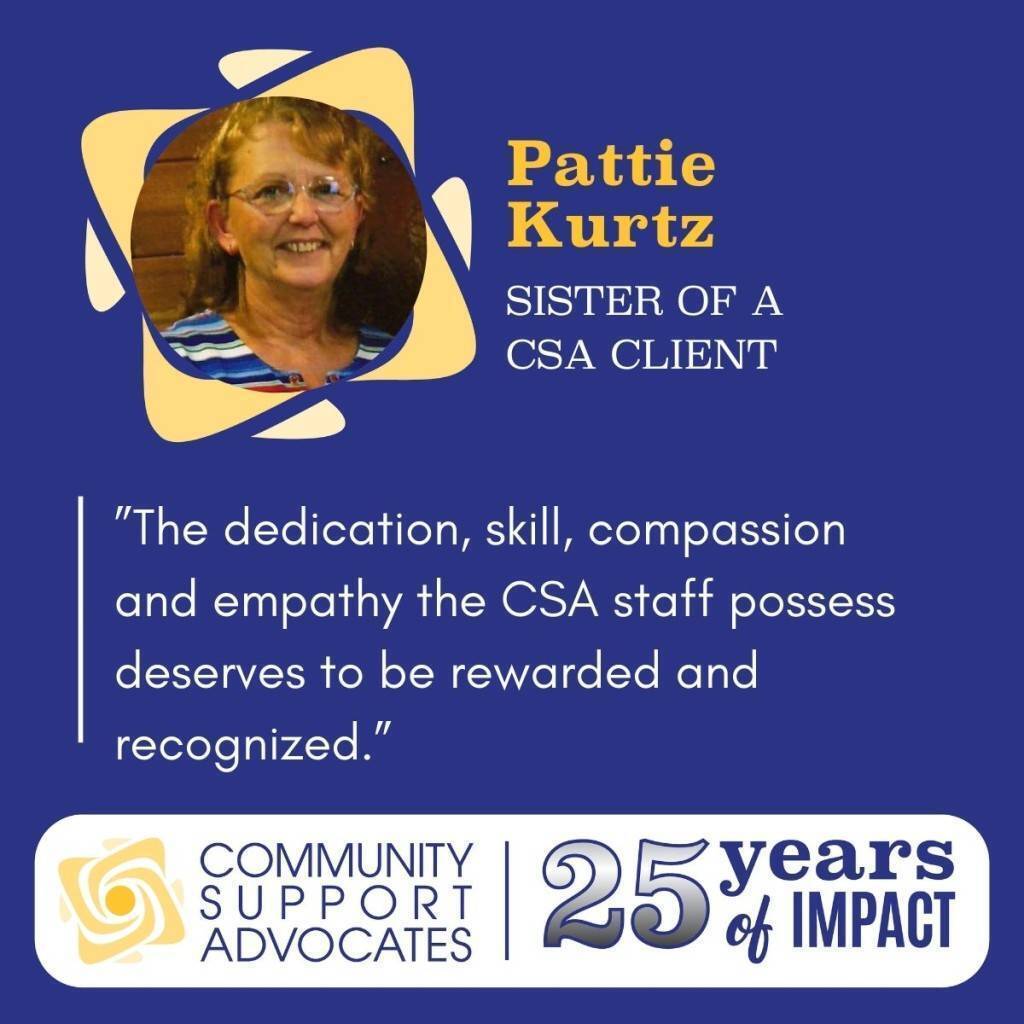
Pattie Kurtz, the sister of a long-time client who received a psychiatric diagnosis in adulthood, tells the story of her brother Don. His quality of life improved thanks to CSA. “As family, we did what we could, but it takes professional staff such as CSA to be able to navigate the quagmire of paperwork and ever-changing programs and rules,” Pattie said.
CSA serves as a “first stop” organization that connects individuals and families to resources — such as employment, education, and community living. CSA’s impact has resonated throughout Polk, Jasper, Story, Dallas, and Warren counties.
Over the years the need has been tremendous, and CSA has grown 1,800% since it first began 25 years ago.
The nonprofit served 100 people during its first year in 1997 — and expects to serve more than 1,900 people this year. Many who have received CSA services shared how their lives have been transformed thanks to the support of the CSA team and the programs they were able to access.
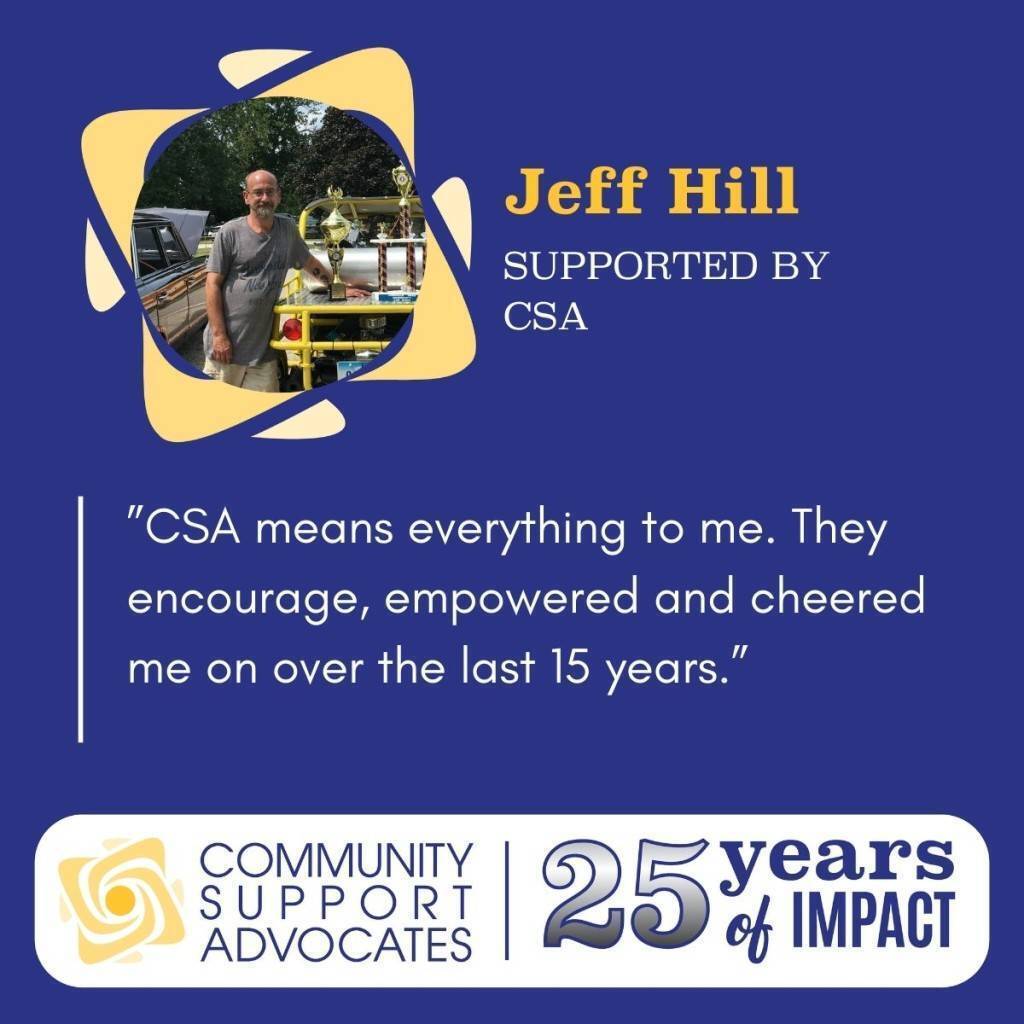
Jeff Hill, who has a mental health disability, shares how he was homeless before accessing CSA’s services. “They made me feel like I am someone, that I am a worthwhile person, and that my life is important,” he said.
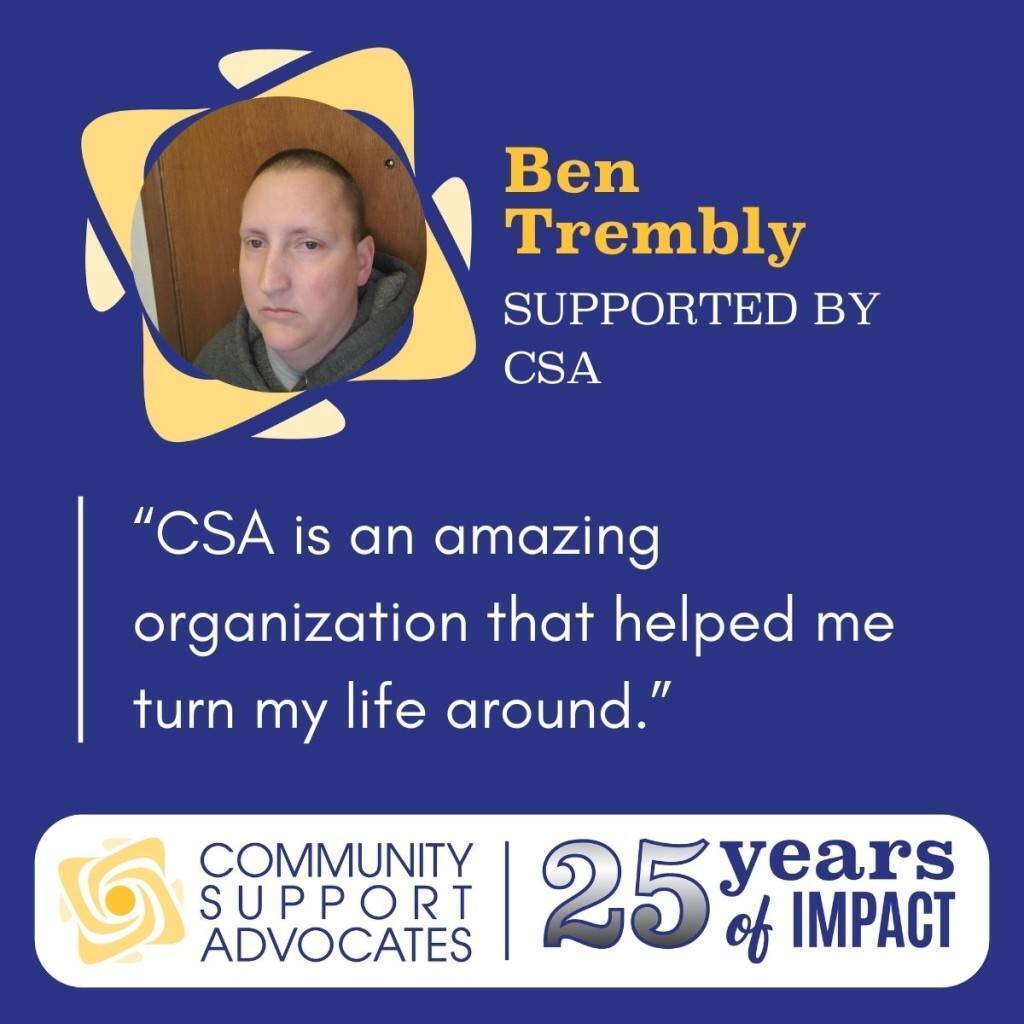
Ben Trembly, who is supported by our Integrated Health Program, shares about the coordinated care he received and the impact of CSA team members. “Without them, I wouldn’t have the support I do now,” he said.
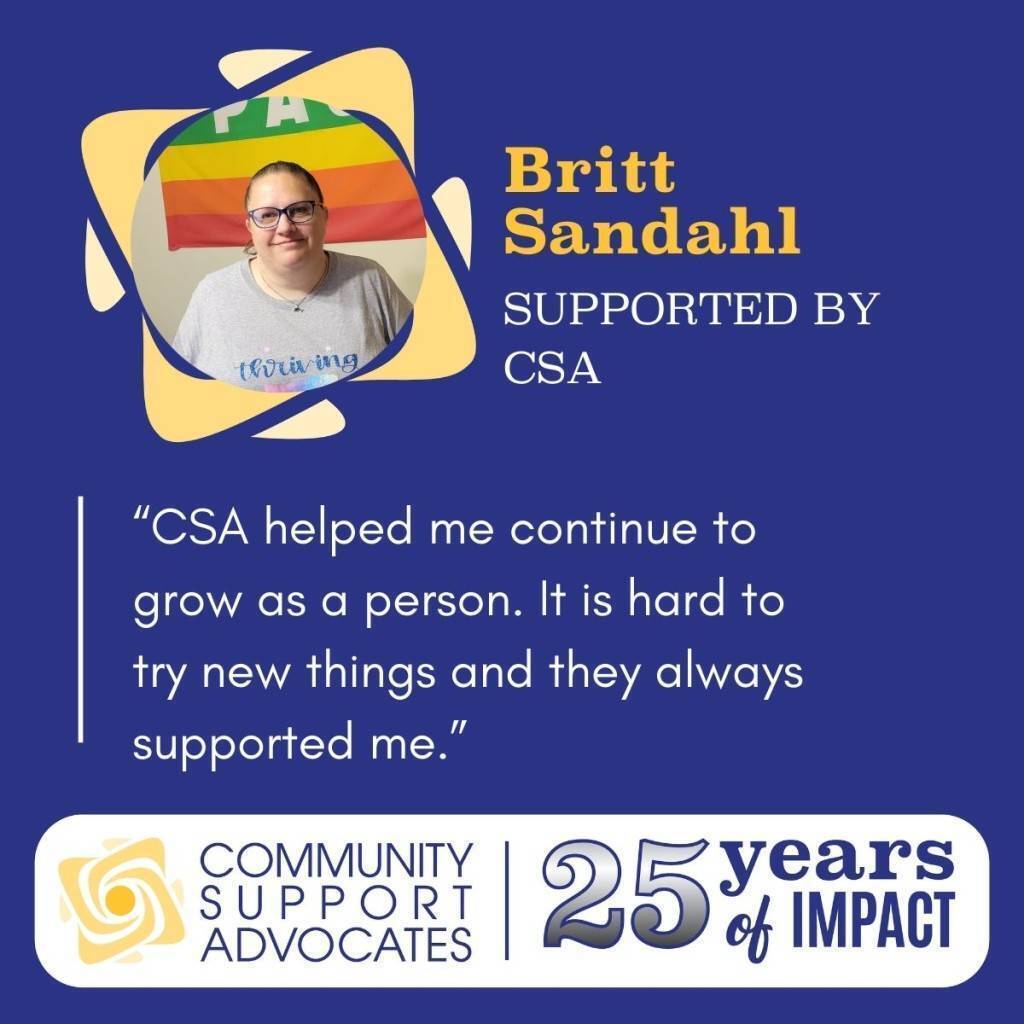
Britt Sandahl, shares how hard it is to have a brain injury, and the support she received from our Case Management program. “CSA helps me to be as independent as I possibly can be,” she said.
CSA team members say they work every day to make an impact, and have seen fist-hand how Central Iowans who previously struggled have become productive members of society when they receive the right support and services
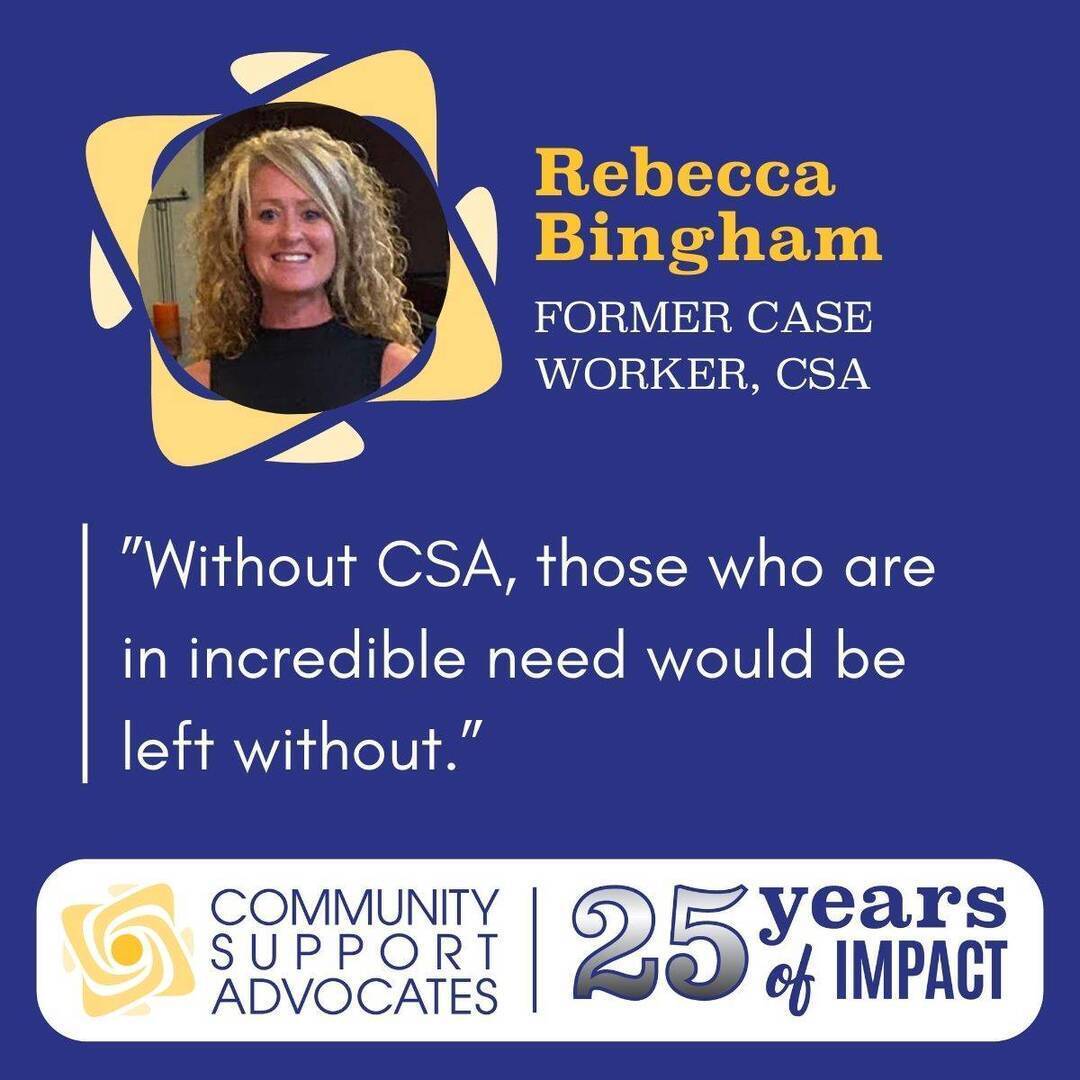
Rebecca Bingham, a former CSA team member who worked in the nonprofit’s case management and integrated services program, said she has seen “countless individuals who went from homeless to housing, from indulgence to sobriety, from isolation to inclusion, from no work history to holding down a job, from insecurity and self-doubt to confidence and self-worth.”
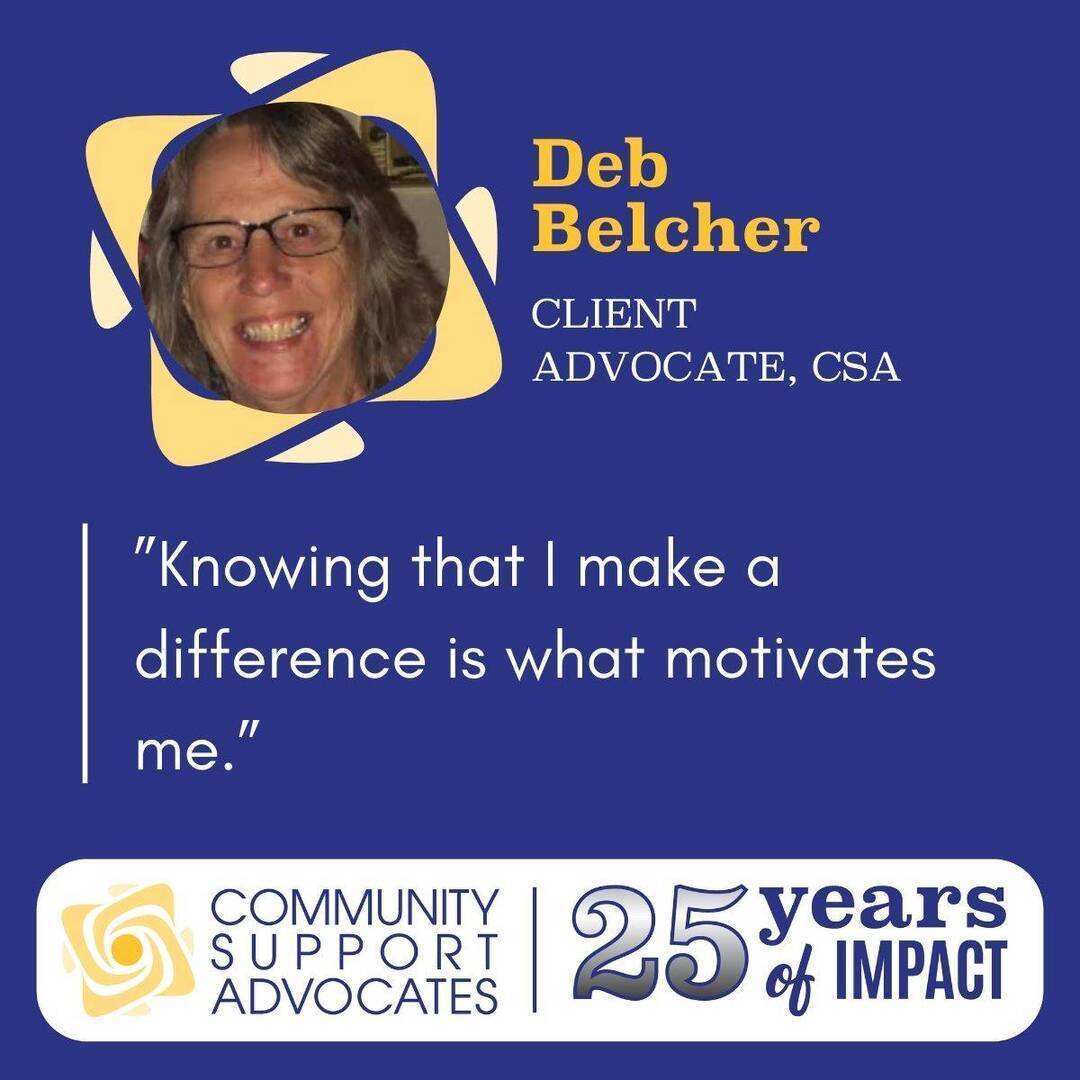
Deb Belcher, who works closely with her team to support 35 adults living with mental illness, intellectual disabilities, or other development disabilities as part of the Integrated Services Program, said she’s seen lives change. “I have had someone tell me that without CSA they would be homeless or dead,” she said.
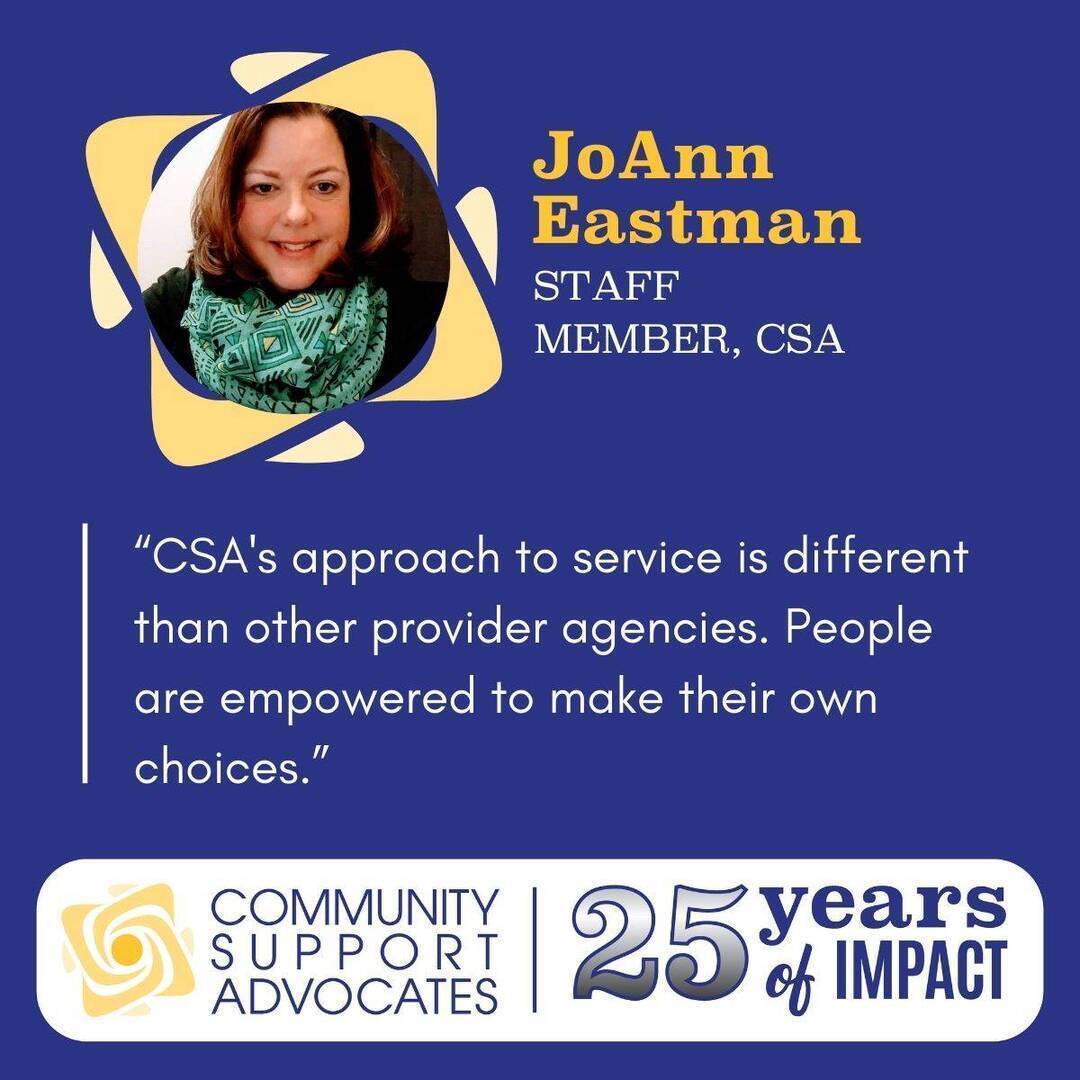
JoAnn Eastman, a team lead in the Knowledge Empowers Youth program, which supports disadvantaged youth, also recounts dramatic turn-arounds, such as a teen who overcame challenges to graduate high school and hold a job
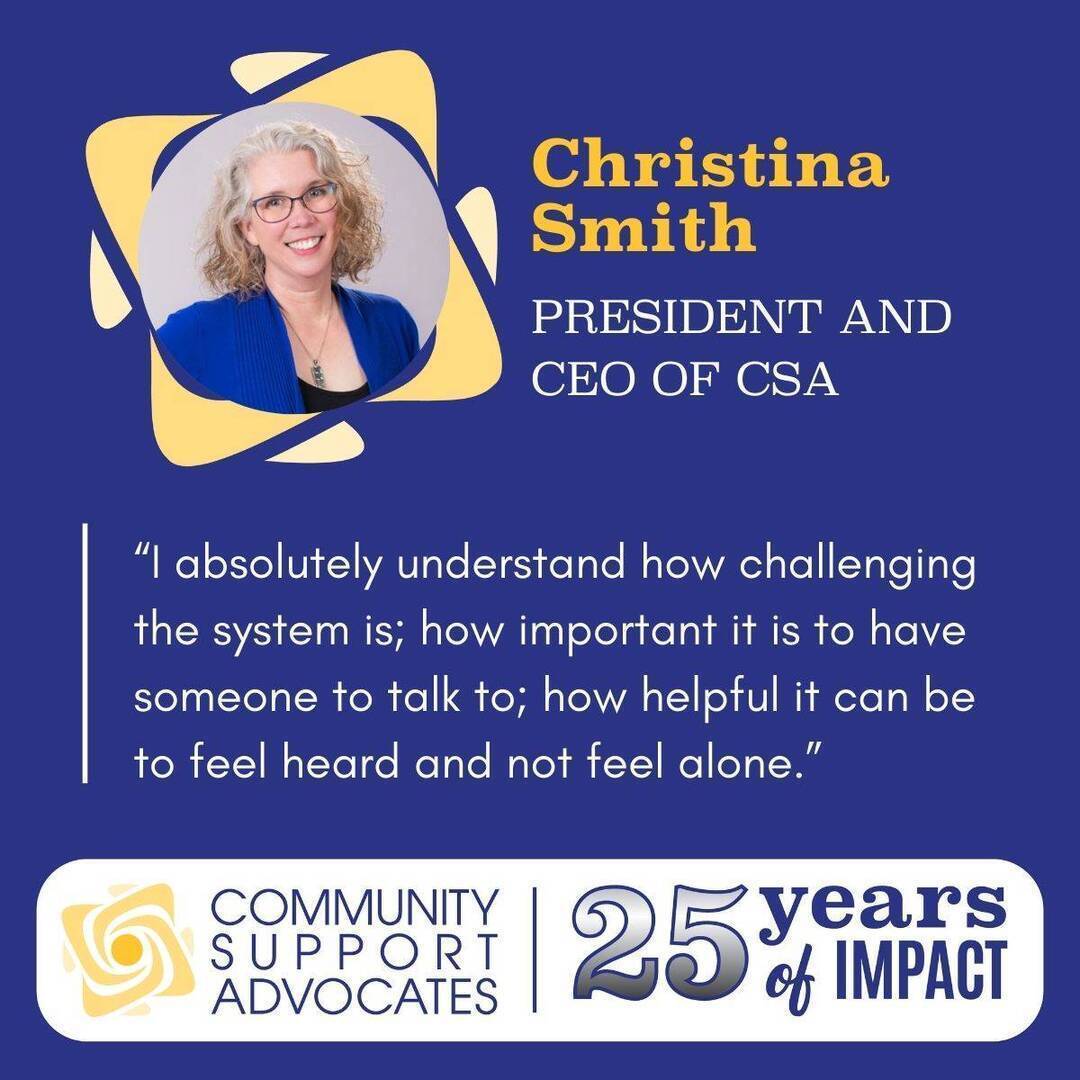
Christina Smith, CSA president and CEO, recounts a young woman who had been in foster care most of her life. She was homeless when she “aged out” and didn’t know where to turn. “A few years ago, she visited me and told me that one of the main reasons she survived that first year of adulthood is because CSA believed in her,” Christina said.
Without CSA, many Iowans would not know where to turn to receive the next step in their services — potentially increasing homelessness and suffering in our community, nonprofit leaders said.
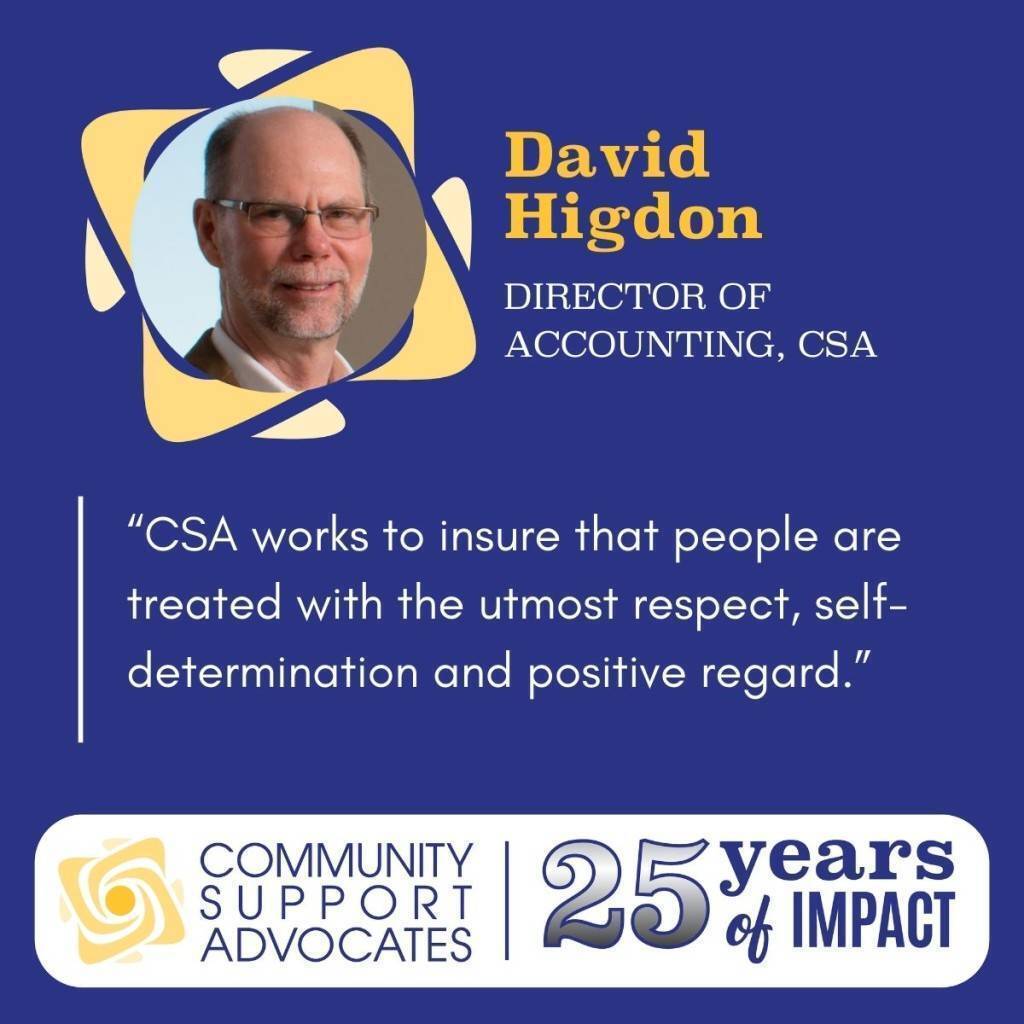
David Higdon, CSA’s retired director of accounting, recounts the impact he saw when previously partnering with CSA while working at Polk County Health Services. “When people returned to Polk County from an institutional setting, CSA exceeded expectations to integrate the person into the community,” he said. “I was always confident that when I called, the person would be in good hands.”
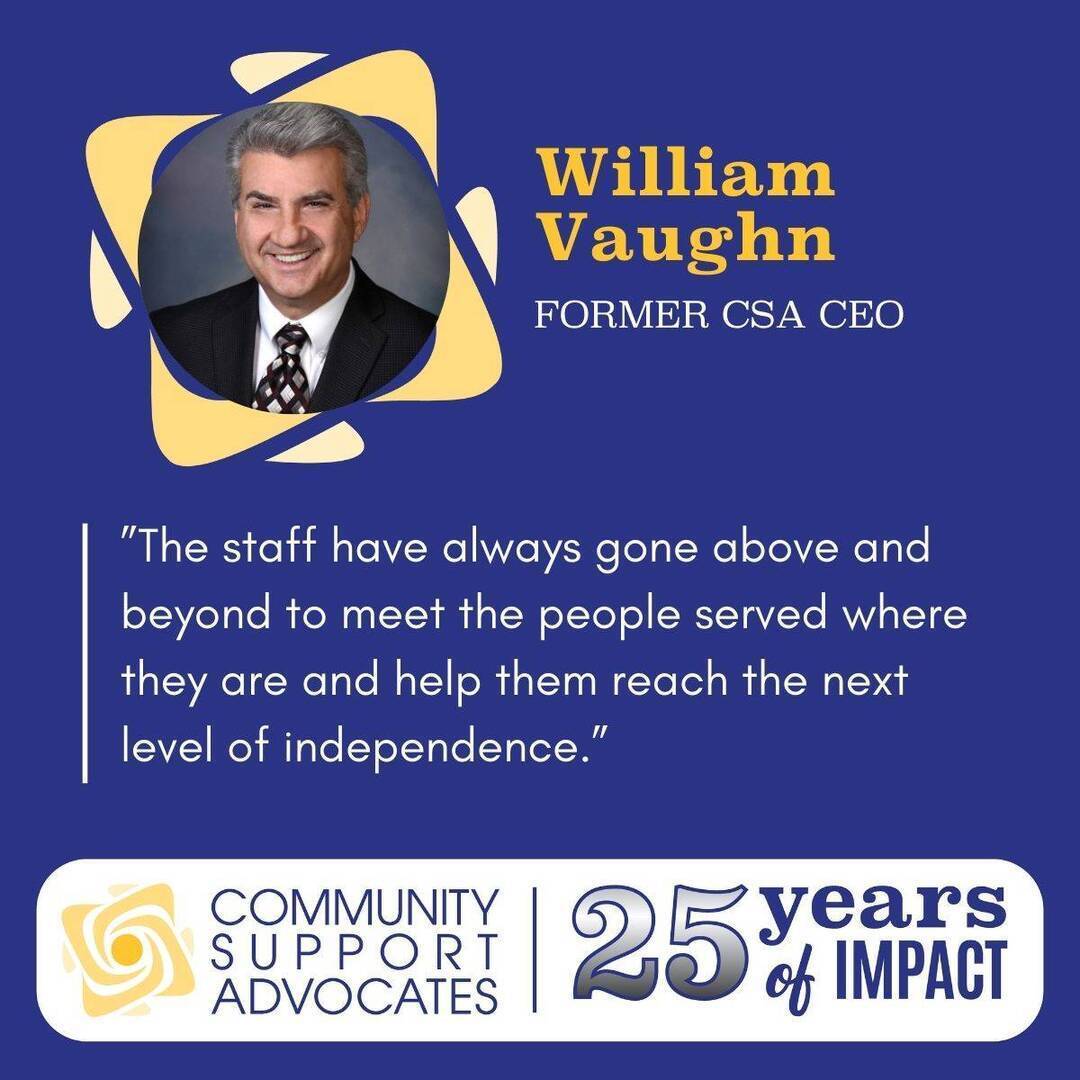
William Vaughn served as CSA’s first CEO and saw the community transform thanks to the nonprofit’s initiatives. Without CSA, he said, “there would be more homelessness, and people with disabilities in Central Iowa would have poorer health, and mental health. There would be more people with disabilities in our jails, psych-wards, and morgues.”
In addition to the care and support services CSA provides, the nonprofit also is known for Momentum, an art program which supports individuals with disabilities and mental health conditions through art-building wellness and resilience.
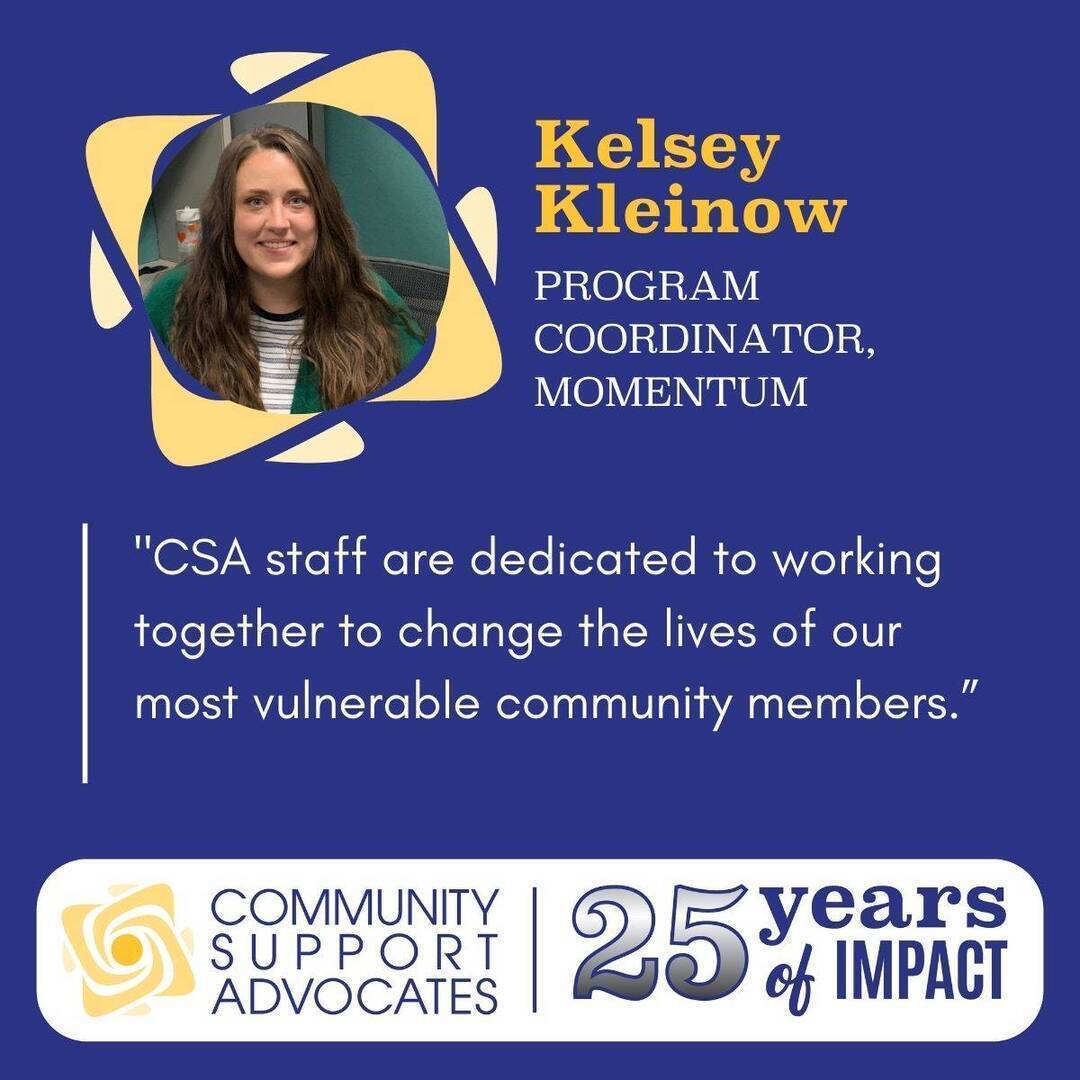
Kelsey Kleinow, a program coordinator with Momentum, sees the impact every day. “Watching our artists build confidence and come out of their shell to talk about their art is truly an experience that warms my heart,” she said.
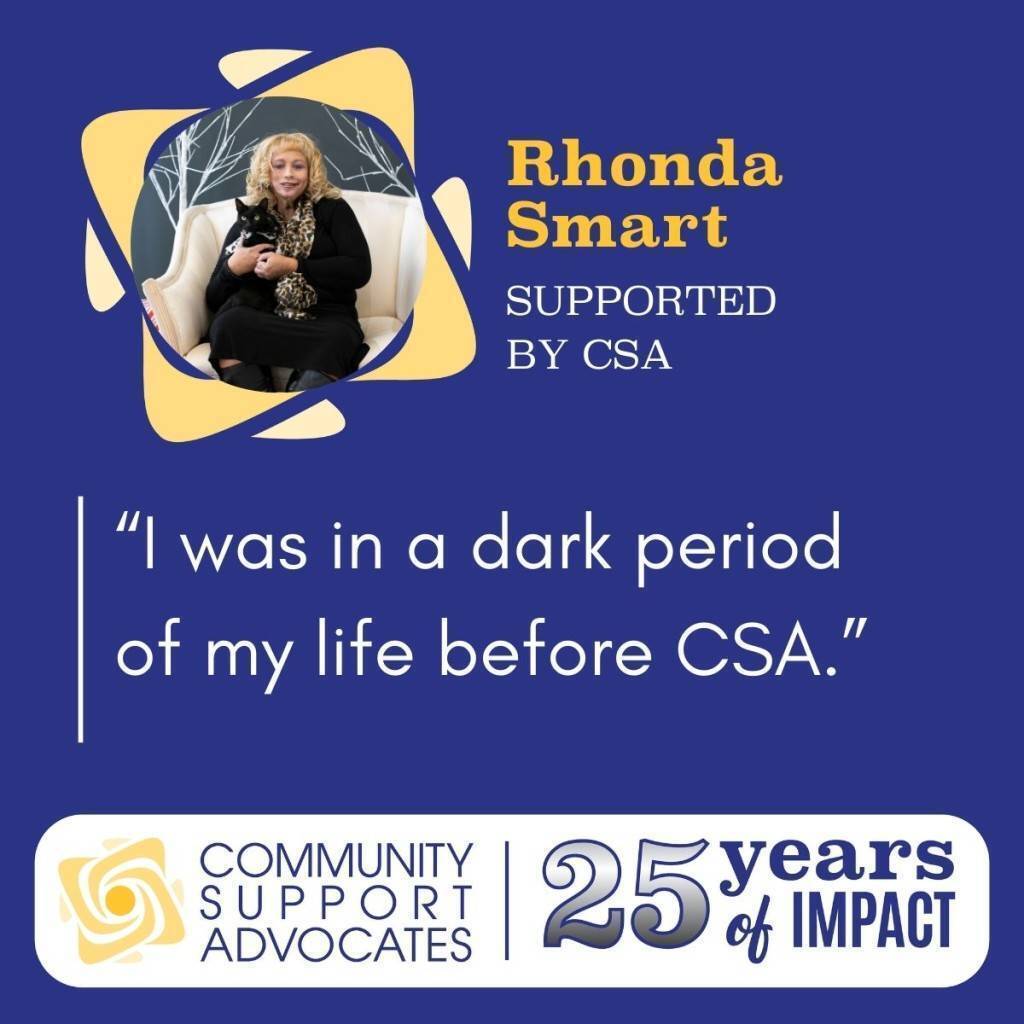
Rhonda Smart is a Momentum artist and has attended the Momentum Art Studio for years. Her art has been featured in both individual and group exhibitions. The program has “given me the ability to grow and gain confidence. It gives me something to look forward to,” she said.
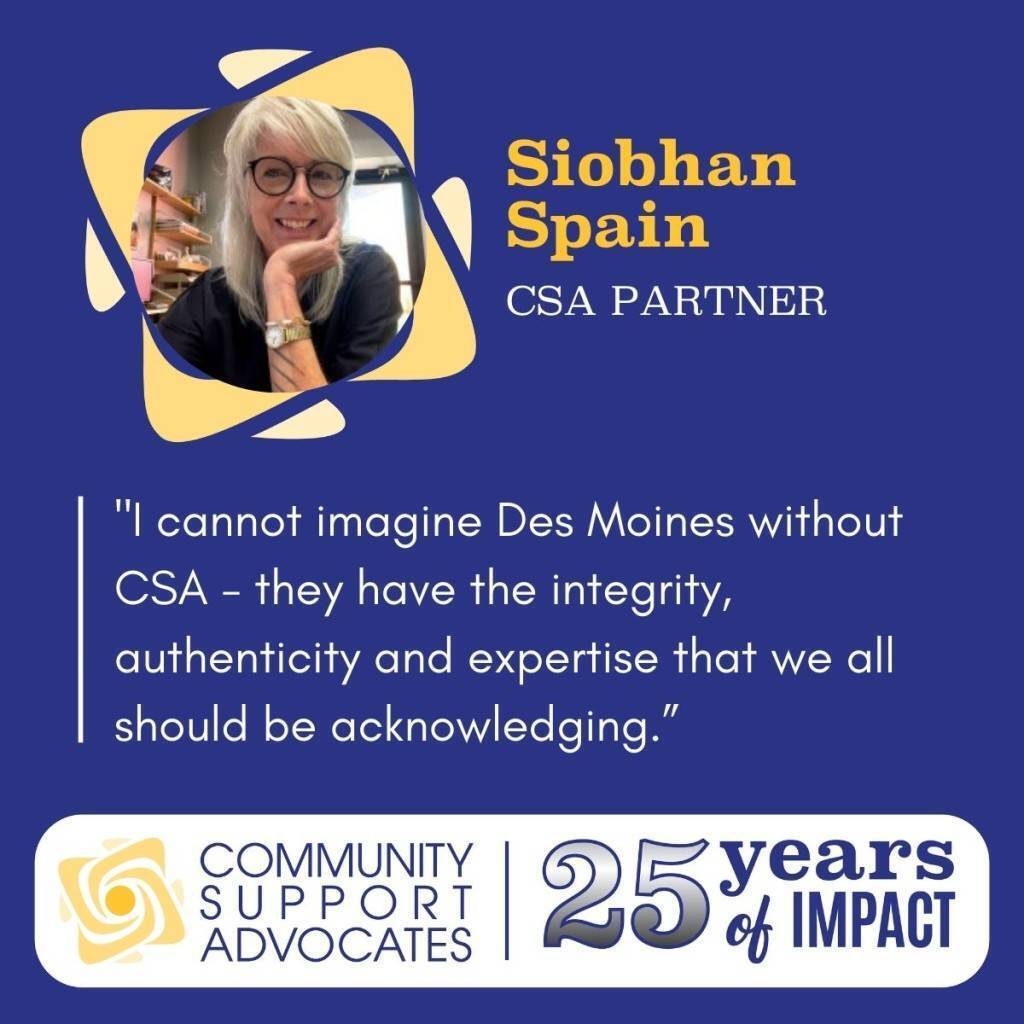
Siobhan Spain has loved the growth she sees in Momentum participants. She partners with CSA through her work at Mainframe Studios, which provides discounted rent to CSA. “I love witnessing creatives involved with their Momentum Art Program annual exhibition be present, proud and optimistic about their future,” she said.
Community organizations have also seen the benefits of CSA’s programs and wide range of expertise in helping their clients access support to improve their lives.
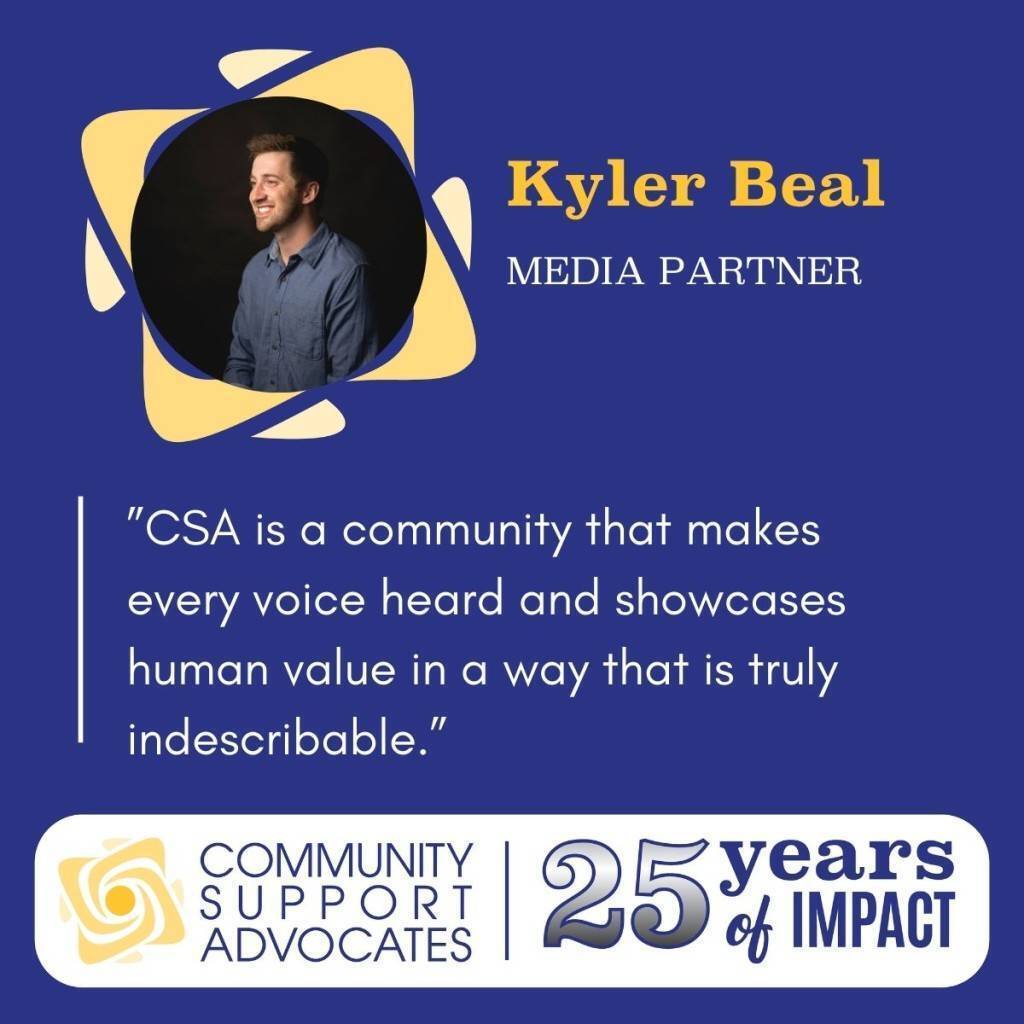
Klyer Beal, who partnered with CSA to share video testimonials of the nonprofit, “saw CSA stand in the gap time after time for its members — a type of unwavering belief that doesn’t come along often,” he said.
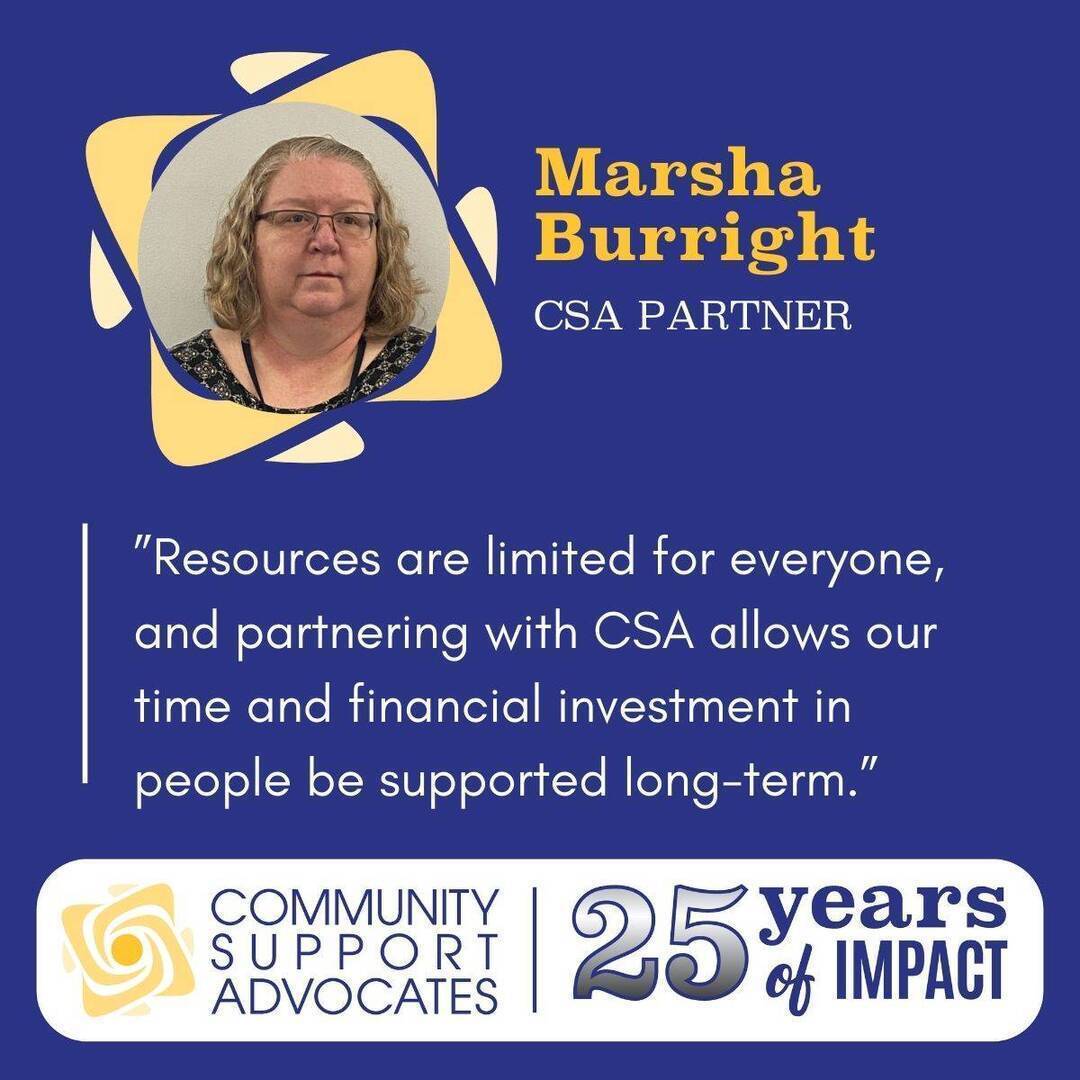
Marsha Burright, who works with a partnering agency primarily focused on employment, also saw the impact on the job candidates she works with. In fact, she can still picture the “BIG SMILE!” of a job candidate that was supported by CSA.
CSA’s current and former board members said it is the impact they see CSA make in the community — as well as the stories of overcoming and success — that motivates them to support the organization.
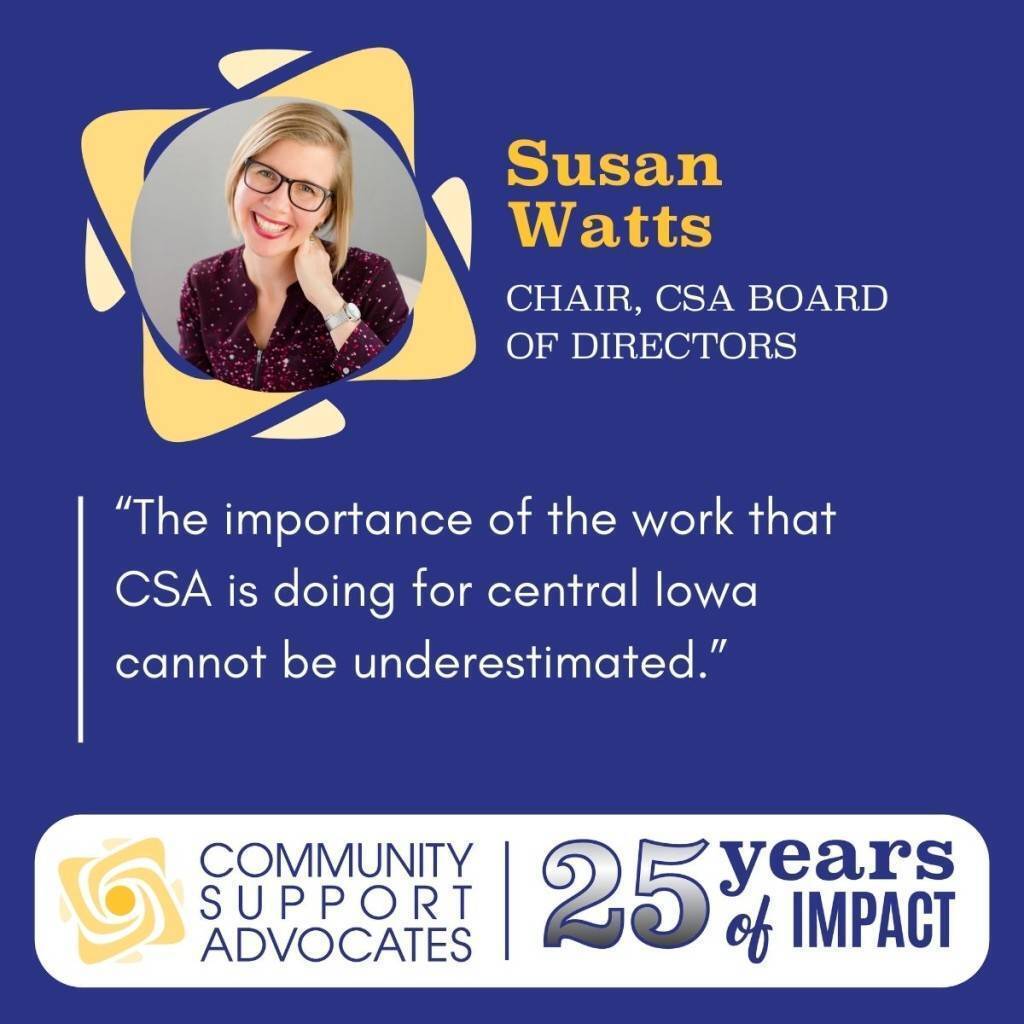
Susan Watts, the current Chair of the CSA Board of Directors, said. “CSA is a literal lifeline for their clients. I see it as an essential part of a healthy community.”
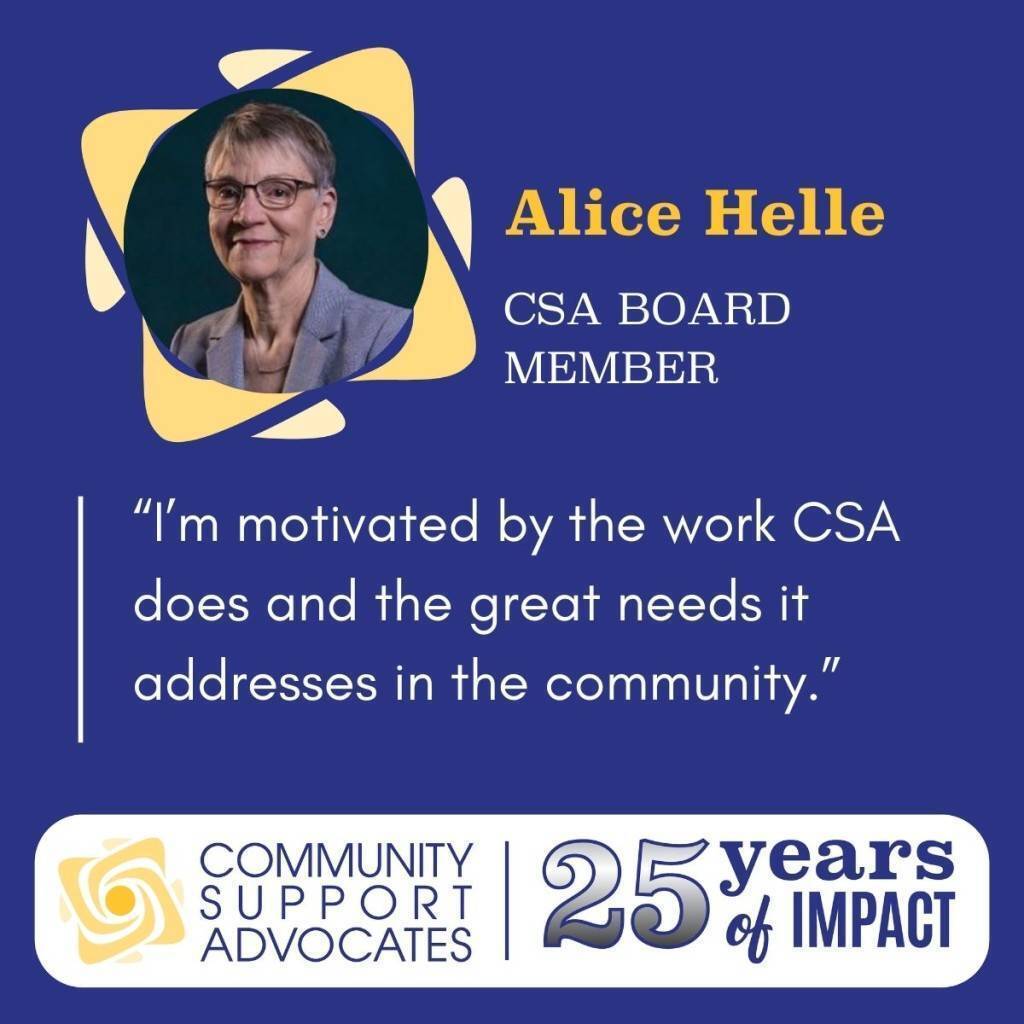
Alice Helle, a board member and CSA supporter, understands first-hand the struggles many face after a cousin became isolated from his family while suffering serious mental illness. Through CSA support, he “gradually became a proud fully-functioning member of the family and society.”
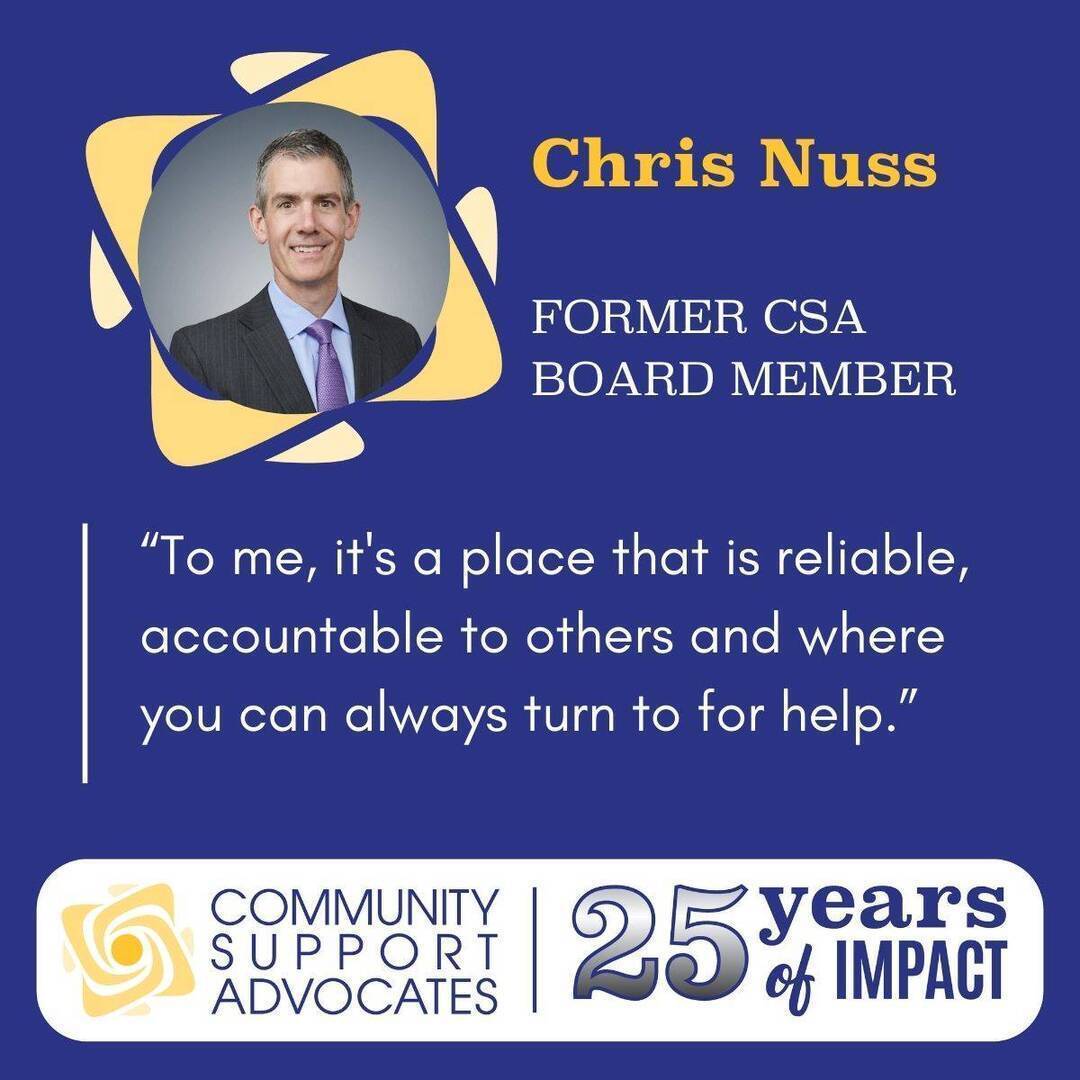
Chris Nuss, a former board member and local attorney, said CSA is “a place that is reliable, accountable to others, and where you can always turn to for help,” he said.
